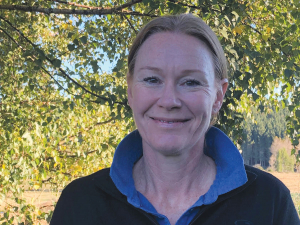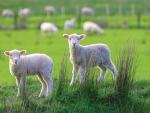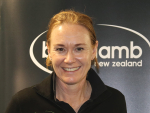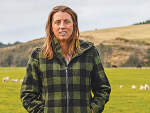Parasites, facial eczema and dairy beef integration all challenge the red meat sector and were the subject of a panel discussion at Beef + Lamb New Zealand's annual meeting last month.
The discussion was facilitated by B+LNZ's general manager of farming excellence Dan Brier.
The panel was made up of AgResearch chief scientist Dr Axel Heiser, Massey University's Dr Nick Sneddon - the lead scientist in the Dairy Progeny Test - and Wormwise Programme manager Ginny Dodunski. All three outlined the work they were doing in their respective fields to help farmers address these issues.
Facial Eczema
Heiser explained how a large, multi-faceted programme is underway which aims to tackle the production-limiting disease that is facial eczema (FE).
He says this programme will look at the ecology of FE, genetics, spore count methods, an understanding of what the rumen does to sporidesmin (the toxin that causes FE) and the potential of a vaccine for sporidesmin.
Heiser added that the initial focus will be to carry out some fundamental science to expand their knowledge of FE and ultimately define two solutions, one pasture-based and one animal-based.
AgResearch, in conjunction with B+LNZ, is also developing a test for FE that does not require an animal to be exposed to the toxin.
Heiser says they think they have identified a handful of markers that can be read via a blood test. However, there is still a long way to go to develop an affordable, high throughput commercial test.
Dairy Beef Integration
Sneddon talked about the challenges and opportunities of integrating the dairy and beef industries through the use of beef genetics in the dairy cows.
He says dairy farmers have different requirements to beef farmers, with the former most concerned about gestation length, calving ease and birthweight, all of which are easy to measure traits.
Conversely, beef farmers want fast growing, early maturing animals that finish well with good meat quality. There are many environmental as well as genetic factors at play, so it is harder to determine how much variation is due solely to genetics.
The Dairy Beef Progeny Test is using genomic tools to help identify the genetics that align with the requirements of both beef and dairy farmers. There is no single breed standing out in the Dairy Beef Progeny Test with the top four bulls coming from different breeds.
Wormwise
Wormwise Programme manager and veterinarian Ginny Dodunski outlined how the focus on internal parasite management needed to shift from a reliance on drench to a farm system approach.
She pointed out that one third of farmers surveyed had triple drench resistance. However, she added that there are farmers throughout the country who are farming successfully with minimal drench inputs and showing what is possible. These include farmers in challenging environments such as intensive bull finishers in Northland and fine wool producers.
"Drench resistance wouldn't be an issue if we set up systems that require minimal drench."
Dodunski says Wormwise is about looking at the whole farm system and while previously its extension was delivered through workshops, the focus is now changing in response to farmers' needs.
She added that surveys have shown farmers prefer to get advice on parasite management from their vets. So, Wormwise is working to help standardise the messages coming out of the vet industry by providing a forum for vets to learn from experts and each other.











